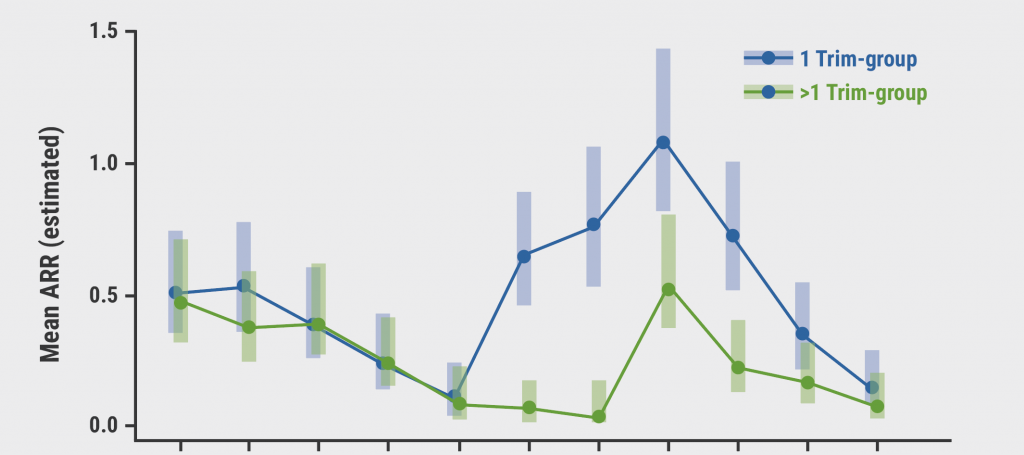"Although escalation therapy is the most accepted treatment strategy for RRMS, it is not evidence based," Dr. Tim Spelman of Karolinska Institute, in Stockholm, and colleagues note in JAMA Neurology.
They used the Danish and Swedish nationwide MS registries to see whether there is an association between differences in treatment strategies (escalation vs. immediate initiation of highly effective DMT) and disability outcomes.
While both countries have similar socioeconomic standards and healthcare systems, the choice of DMT and the treatment strategy for RRMS differ significantly, making it possible to determine whether differences in national treatment strategies for MS influence clinical outcomes, they explain.
A total of 2,700 patients from the Swedish MS registry and 2,161 from the Danish MS registry started a first DMT between 2013 and 2016, were included in the analysis, and were observed for an average of four years.
According to the researchers, the use of highly effective DMT was "far more frequent in the Swedish cohort and was associated with significant reductions in the rate of confirmed disability worsening and relapse outcomes."
Among Danish patients, 92.3% initiated a low to moderately effective DMT and only 7.6% initiated a highly effective DMT. In contrast, among Swedish patients, 65.5% initiated a low to moderately effective DMT and 34.5% initiated a highly effective DMT.
The Swedish treatment strategy was associated with a 29% reduction in the rate of confirmed disability worsening at 24 weeks relative to the Danish treatment strategy (hazard ratio, 0.71; 95% confidence interval: 0.57 to 0.90; P=0.004).
The Swedish treatment strategy was also associated with a 24% reduction in the rate of reaching an expanded disability status scale score of 3 (HR, 0.76; 95% CI, 0.60 to 0.97; P=0.03) and a 25% reduction in the rate of reaching an expanded disability status scale score of 4 (HR, 0.75; 95% CI, 0.61 to 0.96; P=0.01) relative to the Danish strategy.
"This study shows that, for the first time to our knowledge, differences in national treatment recommendations and strategies had a significant association with disability outcomes after a few years of follow-up," the authors write.
"Starting with a more effective therapy and switching to a more effective DMT at treatment discontinuation irrespective of reason seemed to be superior to commencing a conventional first-line DMT and escalation," they add.
The study had no commercial funding. Dr. Spelman reports receiving compensation for serving on scientific advisory boards, honoraria for consultancy, and funding for travel from Biogen Inc; and speaker honoraria from Novartis.
SOURCE: https://bit.ly/3CSgr9q JAMA Neurology, online August 16, 2021.
By Reuters Staff
Posted on
Previous Article
« Authors commenting on RCTs of invasive cardiovascular interventions often have financial conflicts Next Article
New guidelines for BMD surveillance in young cancer survivors released »
« Authors commenting on RCTs of invasive cardiovascular interventions often have financial conflicts Next Article
New guidelines for BMD surveillance in young cancer survivors released »
Related Articles

August 27, 2019
Experimental MS treatments

December 20, 2022
MS activity and pregnancy outcomes after long-term use of natalizumab
December 15, 2022
Inebilizumab effective in NMOSD despite Fc receptor polymorphisms
© 2024 Medicom Medical Publishers. All rights reserved. Terms and Conditions | Privacy Policy
HEAD OFFICE
Laarderhoogtweg 25
1101 EB Amsterdam
The Netherlands
T: +31 85 4012 560
E: publishers@medicom-publishers.com

